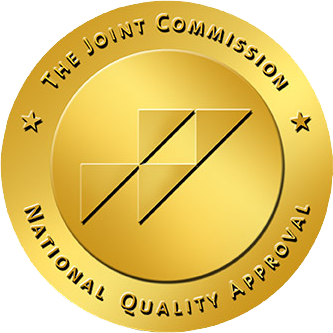After a person with a substance use disorder decides to make a change in their life, they may face withdrawal symptoms. This experience can be uncomfortable and even dangerous. Expert advice and assistance from medical professionals can facilitate a safe, comfortable, and effective withdrawal management process.
What Is Withdrawal Management?
Withdrawal management refers to all the medical and psychological care given to individuals who experience withdrawal symptoms after ceasing drug use. This process is the first stage of substance use disorder treatment. After a successful withdrawal process, people move to the following stages of treatment, typically involving psychosocial care in a residential setting.
Withdrawal management aims to make the process of ceasing drug use safer and more comfortable. Addictive drugs like opioids, alcohol, stimulants, and sedatives often cause unpleasant and even dangerous withdrawal symptoms. A care team consisting of medical professionals designs a withdrawal management program based on each individual’s unique needs. Then, they provide continuous monitoring for the first three to 10 days.

What Is Detoxification?
Detoxification is a process of clearing toxins from the body of an individual who is dependent on substances. Detox works by reducing the harmful effects of these substances and guiding individuals through the early stages of the withdrawal process. It includes three main parts:
- Testing for the presence and concentration of substances and evaluating patients for other mental and physical conditions
- Assisting individuals to a medically stable and substance-free state with or without the use of medication
- Preparing the person to enter substance abuse treatment and continue their care
Withdrawal Management vs. Detox
Withdrawal management and detox often take place simultaneously, which makes them easy to confuse. Each term refers to a different part of the process of ceasing the use of drugs. A detox from drugs focuses on clearing the body of toxins from substance use. Withdrawal management is a broader term referring to psychological and medical care given after drug use.
What Substances Require Withdrawal Management
Only substances that cause withdrawal side effects require withdrawal management. This process aims to improve safety and comfort for those who stop using substances with dangerous or life-threatening side effects. Some drugs, like marijuana, cause minimal withdrawal symptoms and don’t typically need withdrawal management. Anyone who stops use of a substance should consult a medical professional. These experts can explain potential withdrawal symptoms and discuss the best care method.
Here are the substances with the highest health risks:
- Opioids can cause nausea/vomiting, increased anxiety, difficulty sleeping, excessive sweating, watery eyes, runny nose, restlessness, muscle aches, and diarrhea.
- Alcohol can cause nausea/vomiting, increased anxiety, tremors, extreme agitation, seizures, hallucinations, and delirium.
- Sedatives can cause difficulty sleeping, increased anxiety, agitation, irritability, poor concentration and memory, catatonia, hallucinations, heart palpitations, high diastolic blood pressure, vomiting, and delirium.
- Stimulants can cause severe depression, dysphoria, excessive sleep, hunger, and severe psychomotor retardation.

Benefits of Medically Supervised Withdrawal Management
Discontinuing alcohol or substances is a big step in the recovery process. Withdrawal management supports safe recovery with a decreased risk of relapse. There are many benefits to our treatment approach.
At Sana, you and your loved ones can feel confident that you will:
- Be in a safe and secure environment.
- Have a qualified team providing you with continual support.
- Have access to medication-assisted treatment as needed.
- Receive as much symptom relief as medically possible.
- Have access to 24/7 medical attention.
- Have a treatment plan tailored to fit your circumstances.
- Enjoy a comfortable and serene setting.
- Receive care based on the latest research.
Sana Offers New England Detox and Withdrawal Management
Seek healing with support from Sana at Stowe. We provide medically assisted detox and withdrawal management to clear the body of toxins while managing withdrawal symptoms. Get the help you need by calling us or reaching out online.

Sana at Stowe has achieved accreditation and received
a Gold Seal of Approval® from The Joint Commission®.
This accreditation award verifies that Sana meets the most rigorous quality and patient safety standards of care, and shows a dedication to excellence across the full continuum of care. Learn more.

In-network with BlueCross BlueShield and OPTUM
Sana at Stowe is in-network with BlueCross BlueShield and OPTUM
and also accepts most out-of-network insurances, and accepts all private insurance. We provide financial assistance to help with the cost of treatment.


